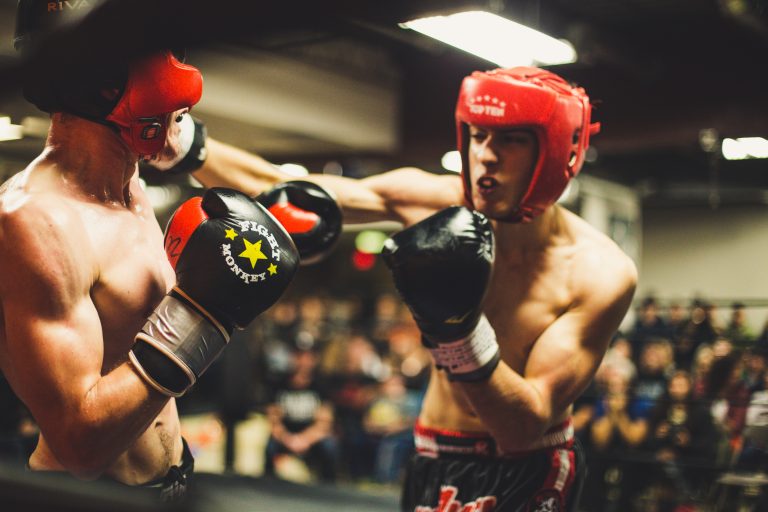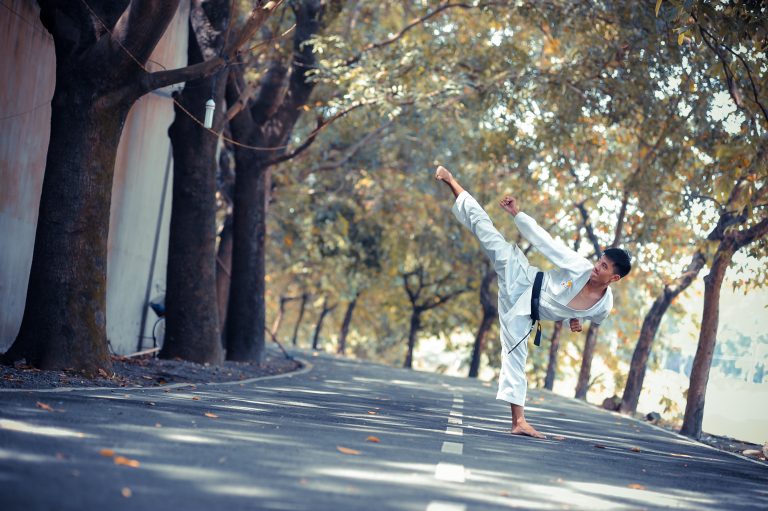What Benefits Does Karate Bring to Kids?
Karate is one of the most popular forms of martial arts for students of all ages. It provides physical exercise and mental stimulation, as well as a heightened sense of discipline, focus, and control. But what benefits does it specifically offer to children?
In this blog post, we will explore the unique advantages of karate for kids, and how parents can get their kids involved in the martial art in a safe and effective manner.
Benefits of Karate for Kids
Karate is a great martial art for kids of all ages, as it offers natural physical and mental development while also upholding values such as respect and dedication. Here are some of the particular benefits that karate brings to children:
1. Improved Physical Fitness
Karate is a full body workout that increases strength, flexibility, and stamina. Through proper technique and repetition, kids will become more adept at controlling their bodies and will be better equipped to perform the basic movements associated with self-defense. Furthermore, karate helps kids utilize their aerobic capacity while maintaining excellent posture, thus improving overall physical fitness.
2. Enhanced Focus and Discipline
Karate promotes discipline and focus as students must learn how to concentrate on every movement, every breath, and every technique. Doing so helps them gain clarity of thought and an understanding of how mental discipline can affect their physical performance.
Moreover, when children commit to karate classes and challenges, it can provide them with a deeper sense of personal responsibility which can benefit them in other aspects of their lives as well.
3. Greater Self-Confidence
There are many challenges associated with karate, namely mental challenges. As students progress in their training and eventually receive their belt rankings, they can gain a sense of accomplishment that could help them develop a greater sense of self-confidence and pride.
Also, karate fighting pays special attention to the concept of equal strength and power between opponents, thus teaching children respect for each other regardless of size or strength. This equanimous approach also teaches children that bad behavior should never be tolerated—an important lesson as these students grow.
Finally, learning self-defense or safely engaging in light sparring with other peers can provide physical confidence and help alleviate bullying in school or other activities where children feel they have little control over their circumstances.
Safety Considerations in Karate
When enrolling your child in karate classes, it is important to make sure that the instructors are qualified, experienced, motivated, and take proper safety precautions. To best ensure safety:
- Search for programs accredited by the Karate Australia Accreditation Program, or the World Karate Federation, which regularly audits and reviews schools.
- Talk to instructors about their experience and qualifications.
- Research local karate schools through reviews from past students.
- Require parental involvement and discuss safety with instructors.
- Encourage children to learn proper techniques and strategies from instructors before going into sparring rounds.
- Provide protective gear like mouth guards, helmets, bright colored clothing, etc.
- Ensure that the classes are taught in a positive and reinforcement-oriented atmosphere.
- Inform instructors if children have previous injuries or any medical conditions.
Getting Kids Involved in Karate
There are many ways in which parents can help their kids get involved in karate. The most important thing is to ensure that the classes are fun and challenging while addressing the safety considerations above. Some tips on getting kids interest in karate include:
- Enrolling them in introductory classes where they can learn the basics at their own pace.
- Introducing them to videos that showcase different types of karate moves.
- Joining clubs or classes where older students help out as assistants.
- Encouraging students to participate in tournaments and challenges.
- Focusing on messaging related to respect, perseverance, dedication, concentration, etc., instead of violence or aggression.
- Rewarding successful completion of classes or levels.
- Providing the necessary age-appropriate protective gear.
Conclusion
Karate is a great way to engage children in physical activity as well as reinforce positive values such as discipline and focus. In addition to improved physical fitness, kids can also benefit from increased self-confidence, respect for peers and self-defense techniques.
However, it is important to ensure that your child’s karate class is safe and taught by experienced professionals who place emphasis on positive reinforcement instead of violent aggression. By following the tips outlined in this blog post, you can help your kids gain the most out of their martial arts experience while also staying safe.
What Benefits Does Karate Bring to Kids?
Karate is a form of martial arts that originated in Japan in the 20th century. It is a physical activity that involves a combination of kicks, punches, and strikes that can be beneficial to kids in many ways. Karate not only promotes physical fitness but also develops focus, discipline, and mental strength. In this blog post, we’ll explore some of the most frequently asked questions about the benefits of karate for kids.
1. Why is Karate Good for Kids?
Karate is a great way for kids to stay active and healthy. It helps to improve their physical fitness, agility, strength, and coordination. Karate also has a positive impact on mental well-being, as it teaches discipline, focus, and respect. Karate can be an excellent way to develop a child’s confidence and self-esteem, as they learn to overcome challenges and accomplish difficult tasks.
2. What Age Should Kids Start Karate?
Kids can start karate as young as four or five years old. However, it’s important to find a karate school that specializes in teaching children and has experienced instructors who can adjust the training to meet the needs of young students. It’s also important for parents to talk to their child’s doctor before starting any physical activity.
3. What Are the Physical Benefits of Karate for Kids?
Karate is an excellent form of exercise that can improve a child’s physical fitness and well-being. Some of the physical benefits of karate for kids include:
- Improved balance, coordination, and flexibility
- Increased strength, endurance, and agility
- Better cardiovascular health and breathing
- Reduced risk of obesity and other health conditions
4. What Are the Mental Benefits of Karate for Kids?
Karate is not just about physical fitness, it also has mental benefits for kids. Karate helps kids to develop discipline, focus, and concentration. These skills can help children to improve their academic performance and manage stress in their daily lives. Karate also emphasizes respect, humility, and self-control, which can help children to develop better social skills and build stronger relationships with others.
5. Can Karate Help Kids with ADHD?
Yes, karate can be beneficial for children with ADHD. Karate classes provide a structured and predictable environment, which can help to improve a child’s focus and attention span. Karate also requires discipline and self-control, which can help children with ADHD to manage their symptoms better. Additionally, karate can provide a fun and engaging form of exercise that can help to reduce hyperactivity and restlessness.
6. What Are the Safety Concerns with Karate for Kids?
Like any physical activity, karate does come with some safety concerns. It’s important to find a qualified instructor who can teach children proper techniques and safety precautions. Parents should also ensure that their child wears the appropriate safety gear, including a mouthguard and gloves. Parents should discuss any safety concerns with the instructor before enrolling their child in karate classes.
7. How Do I Find a Good Karate School for My Child?
Finding a good karate school for your child starts with research. Look for schools and instructors that specialize in teaching children and have experience working with kids of all ages and skill levels. Ask for recommendations from friends, family, and other parents. Visit the school and observe a class to ensure that it’s a good fit for your child’s needs and personality. Finally, talk to the instructor to get a sense of their teaching style and philosophy.
Conclusion:
Karate can be an excellent activity for kids, providing both physical and mental benefits. Karate can help to improve their physical fitness, coordination, and endurance. Moreover, it can provide a structured and predictable environment that can help to develop focus, discipline, and mental strength. Parents should do their research to find a qualified instructor and ensure that their child wears the appropriate safety gear. In conclusion, karate can be a positive experience for kids of all ages and abilities.
Inhaltsverzeichnis






